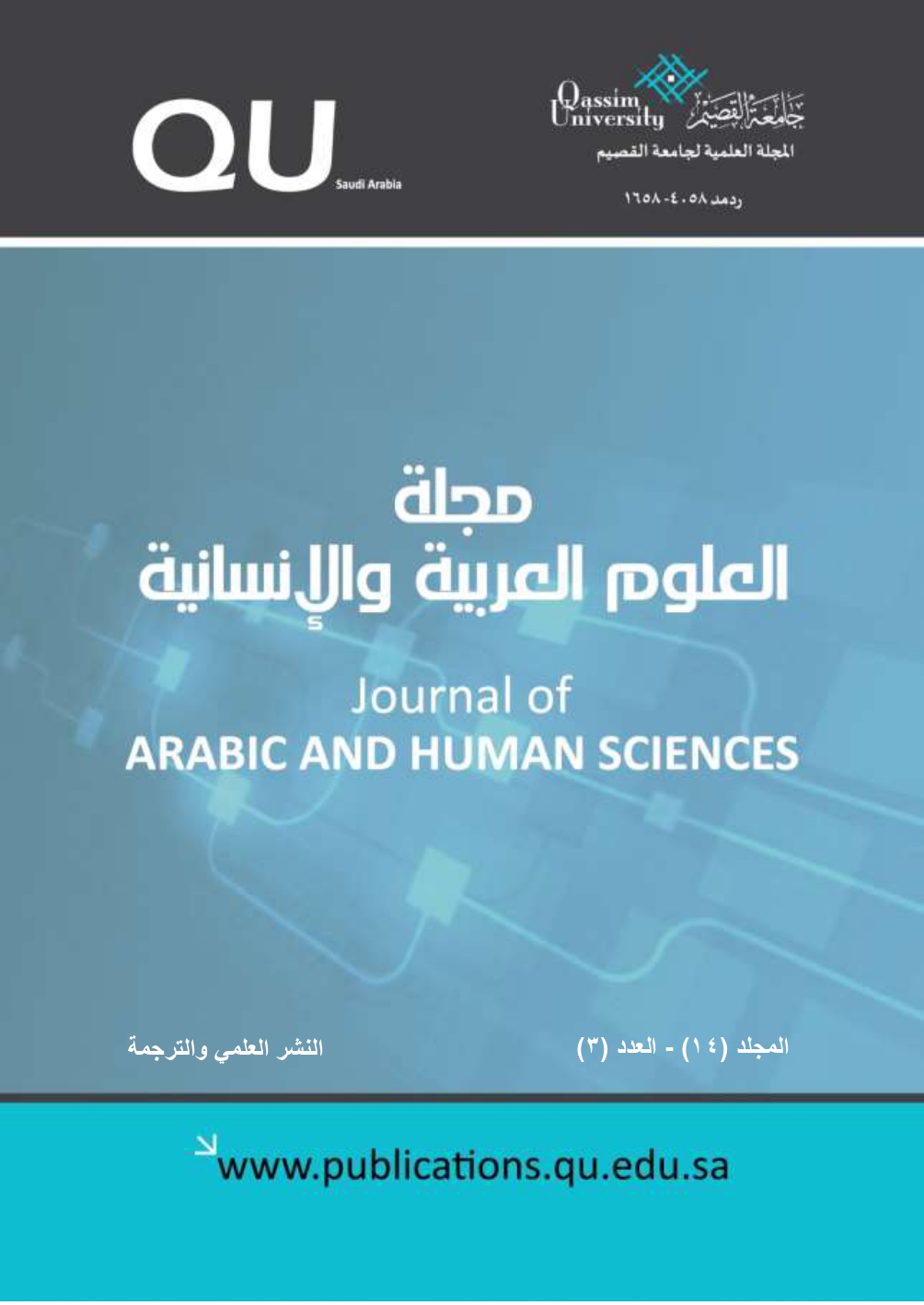Blindness. Imaginary Horizons A case study of Majid Aljard (Darkness Hostels)
Abstract
Abstract: This study discusses the concept of blindness recounts, and it takes into account the novel of (Darkness Hostels) by the Saudi writer Majid Aljard as a sample for study and analysis. It introduces the idea of imaginary horizons and what is written by Philip John about (autobiographical pacts) and the criteria that shape the nature of that pact, in addition to the cognitive and cultural factors suggested by George May which contribute to the nature of (autobiographical novel) and making use of Paris semiotic school (Grimas) in the narrative programs and the cognitive significance perspective in analyzing narrative representations for the blindness narrator (Lyakov Fukoni). Then the study shifts to identify the criteria of this narration style and the effect of blindness impairment as a quality, situation or figure on the elements and constituents of narration, and the consequences that emerge as a result such as phenomena, perceptions, and formation mechanisms whether this is connected with the elements of speech or narration patterns and putting in mind the use of other senses such as hearing, touch, smelling and tasting and whether they can replace eyesight in imaging and vision.


